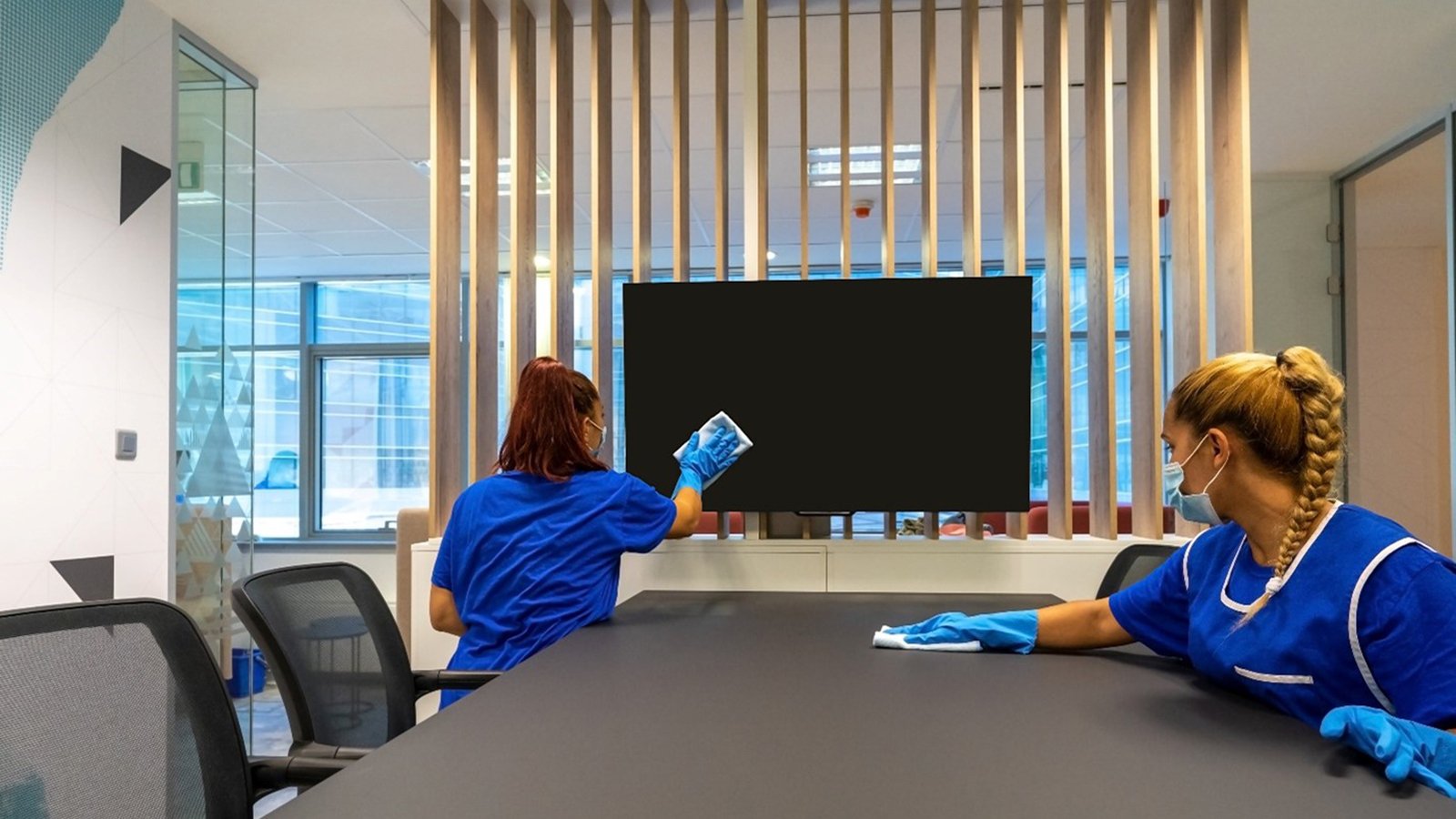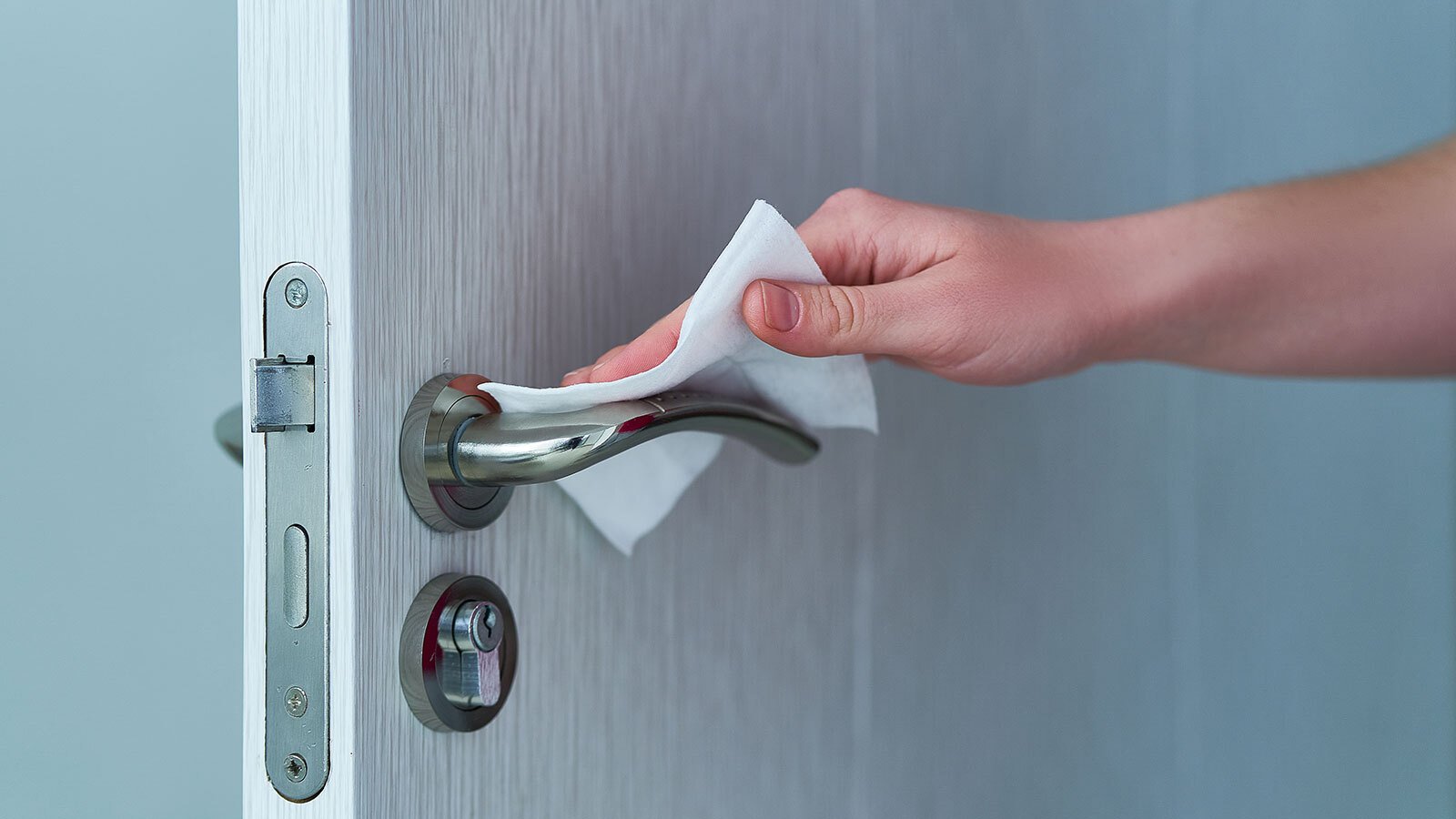Last Updated JULY 2023
A Healthy Workplace Begins with a Clean Sweep
The cold and flu season has arrived, and with it a multi-million-pound headache for businesses.

Hand hygiene is the foundation of workplace hygiene. A study by Michigan State University researchers found that only 5% of people who used the bathroom washed their hands long enough to eliminate germs1.
For good hand hygiene, it is recommended that we wash our hands with soap and warm water and since most of us routinely touch our eyes, noses, and mouths without even noticing, we may be exposing ourselves to germs all around. Germs from unwashed hands can also contaminate foods and beverages and be transferred to other objects we touch daily, such as handrails, phones, and computer keyboards.
Sometimes, washing out hands without drying them out throughly could increase the spread of unwanted germs2. The way you dry your hands is just as important as thorough washing. Single use paper towels are critical to hand hygiene and are recommended as the hand drying method by the WHO Guidelines on Hand Hygiene in Health Care3.
There are germs found lurking in the things we touch and carry with us every day. Desks, on average, have 400 times more germs than toilet seats, supermarket trolleys can carry up to 361 times more bacteria than a toilet doorknob⁴ and businesses are footing the bill for it.
Here are some ways individuals in charge of health and welfare, as well as employees can help promote a healthier working environment:
Cover it up
Coughs and sneezes are a route to the spread of cold & flu germs via airborne particles5. Catching sneezes in a tissue can help prevent the germs from spreading. Use this three step method to sneeze safely:
Step 1: Catch it - Catch your sneeze or cough in a tissue
Step 2: Bin it - Immediately put the tissue in a rubbish bin
Step 3: Wash it - Wash and dry straight away to help remove the germs
Keep hands clean
Washing hands regularly is important for preventing the spread of germs and bacteria. Avoid touching our eyes, nose and mouth with unwashed hands and always practice drying our hands after washing them.
Keep surfaces clean
Germs can be found on many workplace surfaces such as desks, chairs, door handles and work machinery. Touching contaminated surfaces and then touching our faces increases the chance of getting exposed to these unwelcome guests. Its always a good practice to keep the surfaces around us clean by wiping and disinfecting regularly.
Take care of yourself and your employees by always keeping cleanliness at the top of your mind.
Disclaimer:
1 Eww! Only 5 percent wash hands correctly. Published by Michigan State University (MSU Today) https://msutoday.msu.edu/news/2013/eww-only-5-percent-wash-hands-correctly
2 Is Hand Washing Enough To Stop The Spread of Disease? Published by Science Daily, September 8, 2010 https://www.sciencedaily.com/releases/2010/09/100907071353.htm
3 WHO Guidelines on Hand Hygiene in Health Care. Published by the World Health Organization, 2009.
4 Supermarket trolleys are covered in 'as many germs as toilet door handles' https://metro.co.uk/2017/07/04/supermarket-trolleys-are-covered-in-as-many-germs-as-toilet-door-handles-6755101/
5 Advice for the public on COVID-19-World Health Organisation https://www.who.int/emergencies/diseases/novel-coronavirus-2019/advice-for-public











